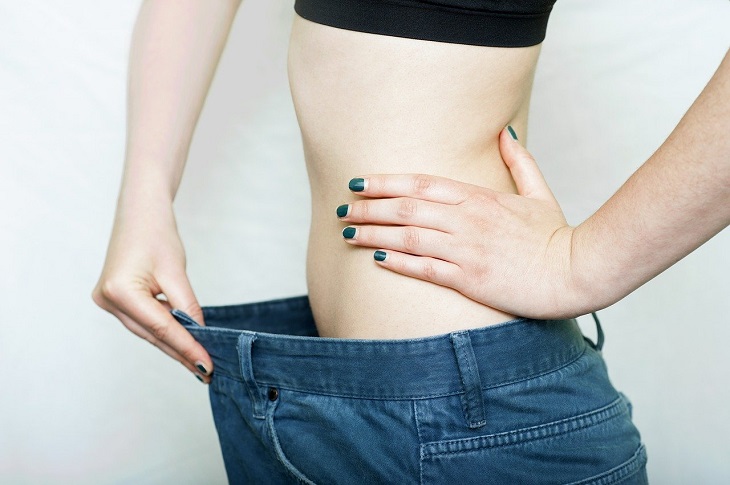The human body requires a specific amount of energy to get through each day. This energy comes from food in the form of calories. Even if you were to lie in bed all day doing nothing, your body would still need a set amount of calories to perform basic vital functions such as breathing and blood circulation. This set number of calories is what is referred to as metabolic rate.
There are two different types of metabolic rate: the basal metabolic rate (BMR) and the resting metabolic rate (RMR). Although these two terms are often used interchangeably, they are slightly different. The BMR is used to measure how many calories a person needs to perform the most basic of tasks. The RMR is used to measure how many calories the body burns while it is at rest.
To calculate a truly accurate BMR, a person must be in a lab setting and under very restrictive conditions whereas they can be measured in the morning before eating or exercising. There are, however, calculators you can use to measure your BMR if you plan to use it to help you reach your weight loss goals.
Why is metabolic rate important?
Knowing your BMR can be a great tool on the road to healthy weight management. This is because it allows you to see just how many calories your body is burning while at rest and how much energy your body needs daily to function. The BMR will be different for anyone, so sometimes, counting calories based on an average isn’t always enough to determine if you’re getting the right amount of energy per day.
For example, if your BMR is 1600 calories per day, that means that you will need to consume 1600 calories just to sustain yourself. This doesn’t account for activity levels. If you are more active, you will need to consume more to help balance the energy in versus energy out levels.

A popular equation used to calculate BMR is the Harris-Benedict BMR. It calculates for men and women separately. The equations are:
- BMR for men: 88.362 + (13.397 x your weight in kg) + (4.799 x your height in cm) – (5.677 x your age in years)
- BMR for women: 447.593 + (9.247 x your weight in kg) + (3.098 x your height in cm) – (4.330 x your age in years)
These equations are able to tell you exactly what your BMR is, which will give you the information you need to determine how many calories you need to consume or burn for weight loss or gain. Be aware that this equation does not take into account your activity level; however, there are Harris-Benedict BMR calculators online that can incorporate that factor for a more accurate measurement.
Does resting metabolic rate decrease with weight loss?
When someone loses weight, they may require less energy to get them through the day. This is because with less body weight, the body doesn’t have to work as hard to perform basic functions and thus less energy is expended throughout the day.
On the opposite side of things, when a person gains weight, their RMR is likely to increase. It also depends on the kind of weight a person gains. For example, muscle gain is more likely to increase RMR to a greater extent than fat gain would. This is because the energy used by fat is lower than the energy used by muscle.
Factors that can affect the RMR include:
- Age. As a person ages, they RMR decreases. This is because of typical age-related changes in weight and body composition caused by hormone changes, the body’s decreased ability to synthesize protein, and cell death.
- Eating less. When a person partakes in caloric restriction, their body lowers the RMR in an effort to conserve the energy it has reserved.
- Medications. Both antidepressants and stimulants can have an effect on RMR. Antidepressants tend to increase it because they are typically associated with weight gain, and stimulants tend to lower it because they are associated with weight loss.
Other than those factors, a person’s RMR is typically unchangeable because it is determined largely by their unique way of expending energy for basic life-sustaining functions.

How do I speed up my metabolism for fat loss?
Although it can be difficult to manipulate your resting metabolic rate, there are things you can do to slightly speed up your metabolism and increase fat loss after you’ve calculated just how many calories your body needs.
One such thing is utilizing the thermic effect of food. Research has shown that the thermic effect helps to increase metabolism for a few hours after eating. The nutrient that offers the highest thermic effect is protein. By eating more protein, you can help to rev up your calorie burning after every meal.
You can also incorporate more exercise, since exercise is proven to help boost the calorie-burning powers of the metabolism. High-intensity workouts, specifically, are great for helping to boost the metabolism. Other ways you can help speed up your metabolism and thus speed up weight loss include drinking more cold water, drinking green or oolong tea, and eating spicy foods.
While you’re pretty much set with your RMR and BMR, you can use it to help you lose fat and get to a healthy overall weight.
Featured image by Bill Oxford on Unsplash